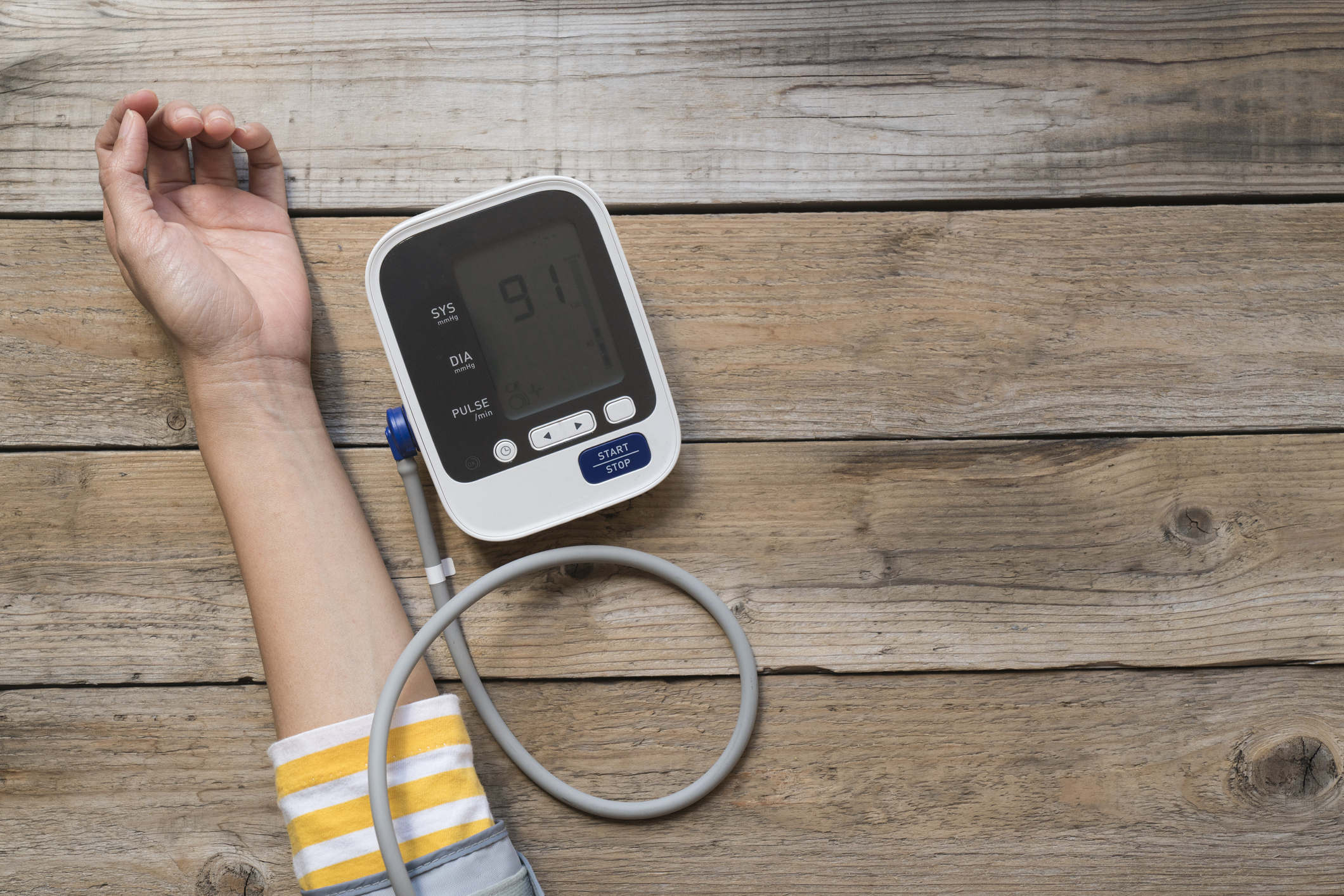
If you are reading this, consider how your brain is working– it is taking in the words on this page and processing the information. Pretty amazing, right? The brain is a vital organ responsible for everything from breathing to walking, emotions, and so much more. Yet, we often neglect thinking about the health of our brains. As we age, it is especially important to understand what impacts brain health and how to keep the brain healthy for a long and full life.
What is brain health?

In broad terms, health is defined as a state of well-being and marked by the absence of illness, disease, or injury (1). Because brain health is central to all bodily functions, you need to keep your mind sharp and your body working properly (2). Poor brain health has been linked to increased risk for heart and brain disease as we age, so it is important to make healthy choices, no matter your age. But how do we keep our brain healthy?
7 simple steps to better brain health
Lifestyle choices can have a significant impact on your overall brain health. Consider these steps for overall better brain health:
1. Manage blood pressure and control cholesterol levels

Blood pressure is the measured force of your blood pushing against the walls of your blood vessels (3). Healthy blood pressure is needed to circulate oxygen and nutrients via the bloodstream to the brain, heart and body. However, consistently high blood pressure can cause harm by increasing the workload of the blood vessels leading to the heart and brain. High blood pressure can lead to various health risks such as stroke, heart attack, and it can also damage the delicate tissues inside the arteries (3). This damage makes the arteries more susceptible to the negative effects of cholesterol.
Cholesterol is essential, in the right amounts, to our body for proper functioning. All the cholesterol you need is made in your liver, while the remainder of the cholesterol in your body, both HDL (“good”) cholesterol, and LDL (“bad”) cholesterol, comes from your diet. As the amount of LDL (“bad”) cholesterol in your blood increases above your body’s needs, so does the risk to your health. LDL cholesterol can join with other substances to form a thick, hard deposit on the inside of artery walls damaged by high blood pressure. This can narrow the arteries and make them less flexible – a condition known as atherosclerosis (4). The buildup in your arteries can further reduce blood flow to the brain and heart, increasing blood pressure and continuing the harmful cycle. Balancing your blood pressure and cholesterol levels within a healthy range is vital to promoting brain health.
2. Manage blood sugar levels

When we eat carbohydrate-rich foods, the stomach breaks it down into sugar (referred to as glucose). Our bodies then take up this glucose into our blood, causing our blood sugar levels to rise. In response to this raised blood sugar level, our body releases the hormone insulin, which helps cells throughout the body absorb glucose and use it for energy to move, exercise, heal and grow, or to store as fat to use later (5). With the help of insulin, sugar is removed from the blood by cells and blood sugar levels can return to a healthy range.
However, if your body cannot efficiently use the insulin it produces, glucose builds up in the bloodstream instead of being used by cells (5). Over time, elevated blood sugar levels can affect many major organs in your body, including the brain, which can lead to an array of serious complications when left untreated.
3. Modify your diet

A healthy diet can provide your brain with the nutrients it needs to remain focused and functioning. Research shows a brain-healthy diet is high in fruits, vegetables, poultry, fish, nuts, whole grains, low-fat dairy, and healthy fats, such as olive oil, and a low in intake of red meats, sweets, sugar-sweetened beverages, saturated fat, and cholesterol (6). A Mediterranean diet is great, as it is typically characterized by including a lot of plants and plant-based foods in the daily diet such as vegetables, fruits, potatoes, grains, beans, olive oil, nuts and seeds, and fish. Eggs, poultry, and dairy are consumed in moderation, and the red meat intake is low. Following a Mediterranean-style diet has also been suggested to help to manage blood pressure, cholesterol, and blood sugar that are common risk factors for brain health.
4. Move more
Staying active can help to reduce blood pressure, boost good cholesterol levels, improve blood flow, and lift your mood, all of which contribute to better brain health. Experts recommend engaging in exercise for at least 30 minutes a day for five days a week (7). Activities to consider include walking, weightlifting, yoga, cycling, kayaking, or anything you find enjoyable while breaking a sweat. Not sure what workout routine is best for your lifestyle? Check out this post by Lifesum.
5. Get enough sleep.
The amount and quality of your sleep have a big impact on your overall health. Getting proper rest can influence eating habits, mood, memory, and focus. Experts suggest that, on average, we need seven to nine hours of restful sleep a night (8).
6. Engage in social activity
Interacting with others is an excellent way to stimulate the brain. Scientists are finding that connecting with others can have powerful effects on our health (9). Make sure you make the time to interact with family, friends, and others for more brain-boosting benefits.
7. Stop smoking and moderate alcohol intake
Cigarettes, e-cigarettes, and tobacco products contain toxins dangerous to human health, specifically carbon monoxide and nicotine. Carbon monoxide is harmful as it decreases the amount of oxygen carried in the red blood cells. It can also increase the accumulation of cholesterol in the lining of the arteries (10). Nicotine, a dangerous and addictive chemical, can cause an increase in blood pressure, heart rate, and blood flow to the heart, and a constricting of the arteries (10). Smoking is also linked to heart disease, stroke, and other chronic diseases
When it comes to enjoying a drink, moderation is key. Excessive alcohol intake can interfere with the brain’s communication pathways, affecting how the brain works (11). It can also contribute to high cholesterol levels and high blood pressure, increasing the risk of developing heart disease. Experts suggest if you like a glass of wine or a beer, limit it to an average of one to two drinks per day for men and one drink per day for women (11).
Engaging in healthy lifestyle choices is not only good for overall health, but for brain health as well. Following these steps toward a healthy lifestyle may help you live a longer, happier life. Not sure where to start? Lifesum’s in-app health tracker, Life Score™, will provide you with tips on how to improve your health. What do you do to keep your brain healthy?
All of the content and media on Lifesum is created and published for information purposes only. It is not intended to be used as a substitute for medical advice or treatment. Users should always consult with a doctor or other health care professional for medical advice.
References
- Brüssow H. What is health?. Microb Biotechnol. 2013;6(4):341-348. doi:10.1111/1751-7915
- American Heart Association (AHA). Brain Health. 2019. https://www.heart.org/en/health-topics/brain-health (accessed 07-07-2020)
- American Heart Association (AHA). The facts about high blood pressure. 2017. https://www.heart.org/en/health-topics/high-blood-pressure/the-facts-about-high-blood-pressure (accessed 07-07-2020)
- American Heart Association (AHA). Atherosclerosis. 2017. https://www.heart.org/en/health-topics/cholesterol/about-cholesterol/atherosclerosis (accessed 07-08-2020)
- American Heart Association (AHA). Prediabetes and digestion. 2015. https://www.heart.org/en/health-topics/diabetes/about-diabetes/prediabetes-and-digestion (accessed 07-08-2020)
- American Heart Association (AHA). Healthy Eating helps keep your Brain Sharp.2019. https://www.heart.org/en/health-topics/brain-health/brain-health-resources/healthy-eating-helps-keep-your-brain-sharp (accessed 07-09-2020)
- American Heart Association (AHA). Why is physical activity so important for health and wellbeing. 2017. https://www.heart.org/en/healthy-living/fitness/fitness-basics/why-is-physical-activity-so-important-for-health-and-wellbeing
- American Heart Association (AHA). How to Sleep Better with Tech Tweaks. 2017. https://www.heart.org/en/healthy-living/healthy-lifestyle/sleep/how-to-sleep-better-with-tech-tweaks (accessed 07-09-2020)
- National Institute of Health (NIH). Social Wellness Toolkit. 2018. https://www.nih.gov/health-information/social-wellness-toolkit (accessed 07-10-2020)
- American Heart Association (AHA). How Smoking and Nicotine Damage Your Body. 2015.https://www.heart.org/en/healthy-living/healthy-lifestyle/quit-smoking-tobacco/how-smoking-and-nicotine-damage-your-body (accessed 07-10-2020)
- American Heart Association (AHA). Is drinking alcohol part of a healthy lifestyle? 2019. https://www.heart.org/en/healthy-living/healthy-eating/eat-smart/nutrition-basics/alcohol-and-heart-health (accessed 07-10-2020)
All of the content and media on Lifesum is created and published for information purposes only. It is not intended to be used as a substitute for medical advice or treatment. Users should always consult with a doctor or other health care professional for medical advice. If you have or think you are at risk of developing an eating disorder, do not use the Lifesum app and seek immediate medical help.